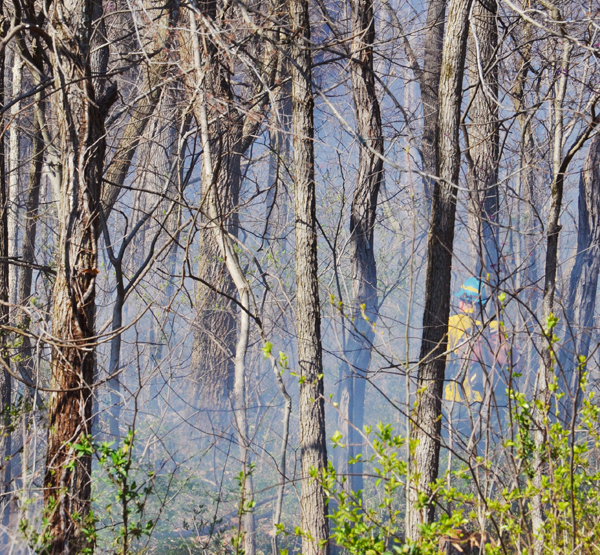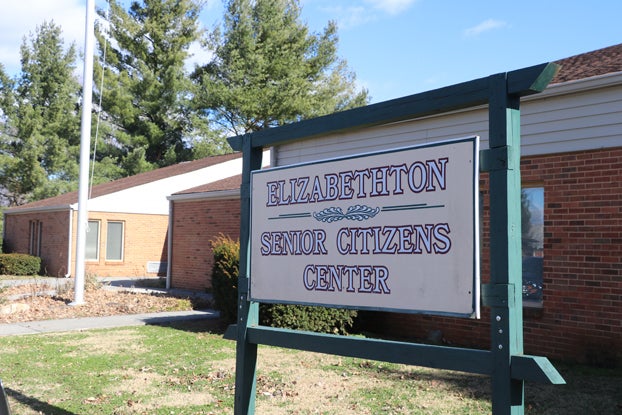Burn permits required through mid-May
Published 11:07 am Wednesday, March 23, 2016

Star Photo/Rebekah Price
Forestry technicians worked to contain a fire that spread quickly uphill in Watauga after a resident dumped ashed from a woodstove outside.
The recent temperate weather has lured people outside to work around their homes and gardens, which for many involves clearing and burning brush. For this reason, the Tennessee Department of Agriculture Division of Forestry is reminding citizens that if they plan to burn outdoors, a burn permit is required until May 15.
“With two of the past three years experiencing record low fire numbers, we hope to see a continuation of that trend,” State Forester Jere Jeter said. “But we need our citizens’ help. Burning leaves and brush that have accumulated around the yard or using fire to clear an old field is an efficient way to get rid of vegetation. However, it is very important that citizens practice safe outdoor burning.”
“Requiring a burn permit is our way of making the public aware of those recommendations and helping them know when, where, and how to safely burn,” he added.
Permits are free and are available by phone at 423-725-3281 or by stopping by the Division of Forestry. Currently, due to dry conditions, the permits are not available online.
“This allows us to talk with people one-on-one to make sure they understand how to burn safely,” said Forestry Technician James Heaton.
Permits are typically valid for 24 hours for legal burning. In Tennessee, this includes brush, leaves, and natural vegetation. Heaton said state law prohibits the burning of household rubbish, paper or painted or treated wood.
More than 387,000 permits were issued last year for outdoor burning of brush and leaves, untreated wood waste and burning to clear land, according to the Department of Agriculture.
He said though it may seem there have been more fires than usual, the number this spring for Carter County is average.
“Usually when it gets warm and dry in Spring, fires start picking up, and that will probably continue until we get substantial rain,” said Heaton.
Though the number of fires resulting from suspected arson are higher, the number of escaped debris burn fires and miscellaneous fires are average. A number of fires in Roan Mountain resulted from suspected arson, which Heaton said is under investigation.
This is a pattern in the state: escaped debris burns were the leading cause of wildfires in 2015, accounting for 251 fires that burned more than 1,900 acres.
“The Division’s burn permit system has dramatically helped reduce the number of escaped burns since the program began in 1995,” said Forestry communication and outreach leader Tim Phelps. “Burning without a permit is a Class C misdemeanor punishable by up to 30 days in jail and/or a fine not to exceed $50.”
The second leading cause of wildfires last year was arson, accounting for 5,600 burned acres. Wildland arson is a class C felony punishable by three to 15 years in prison and up to $10,000 in fines. Anyone with information about suspected arson activity is advised to contact the state Fire Marshal’s Arson Hotline toll-free at 1-800-762-3017.
This has been an ongoing issue in Roan Mountain, where Heaton said a number of fires resulting from suspected arson are being investigated.
Additional causes of fires this time of year are from miscellaneous causes, like the most recent fire in Watauga. Behind a home on the 200 block of the Ninth Street Extension on Monday, a fire burned an acre of mountainside. Heaton said this resulted from the dumping of hot ash from a wood stove.
“Quick response from agencies likely saved several acres from burning,” said Heaton. “Several volunteer fire departments including Watauga, Central, West Carter and Stoney Creek were dispatched on the fire as well as resources from the Tennessee Division of Forestry.”
Due to the low humidity and high winds, Heaton said it is especially important for those intending to burn to acquire the appropriate permit either by phone or in person.
Once the permit is obtained, burners are advised to practice common sense:
• Establish a control line around the fire, down to bare soil before conducting the burn.
• Notify neighbors and local fire departments in advance as a courtesy.
• Have tools on hand such as a leaf rake and garden hose or bucket of water to help control fire that escapes.
• Watch for changing weather conditions as winds can blow the fire in the wrong direction.
• Always stay with your fire until it is completely out. It is illegal to leave an open fire unattended.
For more information on safe and legal burning practices, visit burnsafetn.org.





